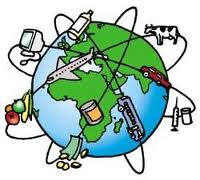
According to Ambassador Juan Carlos Moneta, Permanent Secretary of the Latin American Economic System (SELA), globalization is the “passage of traditional and modern cultural identities that have a territorial basis, for other modern and postmodern that are trans-territorial in nature.”
As for the trend toward diversity or homogeneity of the globalization process, authors argue that the greatest effects are homogenizing and result from the impact caused by transnational corporations and major industrialized countries, as sources for the message of consumption and the market culture. The globalization process tends towards a universal language, inclusive of all cultures.
The authors who argue that the globalization process tends towards heterogeneity say that nationally there are processes of appropriation and modification of messages and symbols.
For now, countries tend to defend their regional and national characteristics that are differentiated at the linguistic level. Attempts at globalizing language tend to impoverish the regional characteristics of local languages and enrich gradually globalizing concepts that originate, and then are developed and expressed in the dominant languages. In this sense, it is common to recognize the use of the expressions that “become trendy” from a particular language that “gives” the buzzword to other languages.
In short, every language admits or rejects a lesser or greater extent of the globalizing trends of the market in their own interests, allowing the advance of globalization in the language field.
(Spanish version: https://www.trustedtranslations.com/globalizacion-2011-01-11.html)





